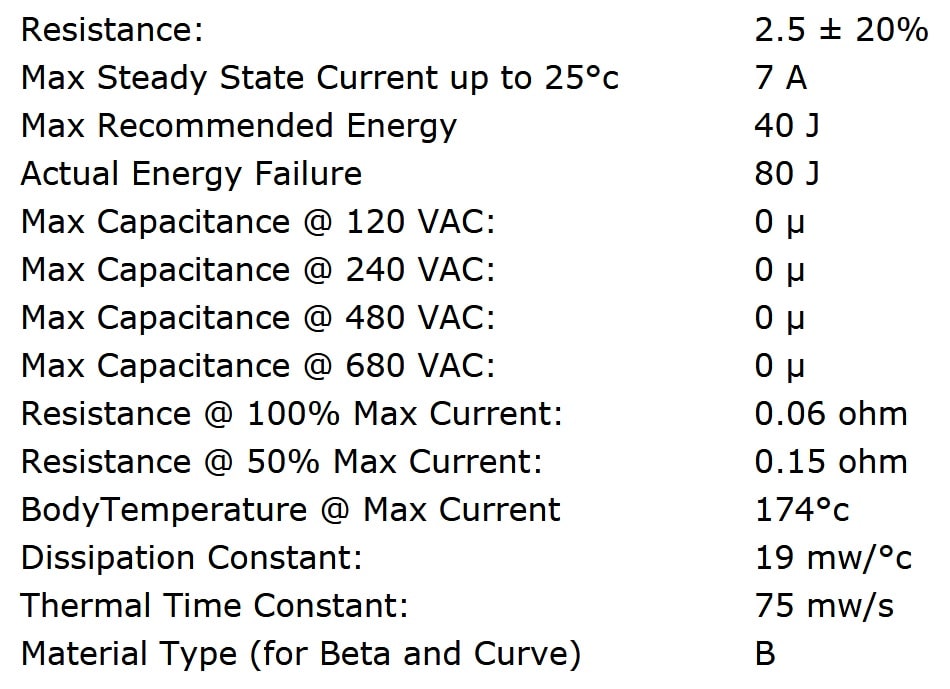The SL15 2R507 inrush current limiting thermistor from Ametherm offers a maximum steady state current of 7A (up to +25°C), resistance of 2.5Ω ±20% (at 25°C) and a maximum recommended energy rating of 40J. The Ametherm SL series suppresses surge currents that occur when electrical circuits are switched on, preventing serious damage to sensitive electronic components if their rated current values are exceeded. Connected in series with the load, at “switch-on” they limit the current due to its relatively high cold resistance. As a result of current flow, the thermistor self-heats and in turn reducing its resistance value so that once the initial surge current has been safely held off, the resistance in the thermistor is maintained at a low value to maximise efficiency
Typical applications for the SL series include:
The below table gives the full specifications of the Ametherm SL15 2R507 series:

| Weight | 0.00000 kg |
|---|---|
| Dimensions | 22.50 x 4.50 x 15.00mm |
| Actual Energy Failure | 80J |
| Dissipation Constant | 19mW/°C |
| Material Type | |
| Maximum Recommended Energy | 40J |
| Maximum Steady State Current | 7A |
| Package / Size | |
| Resistance at +25°C | 2.5Ω |
| Series / Model | |
| Thermal Time Constant | 75mW/s |
| Tolerance |
This product meets the requirements in compliance with RoHS Directive 2011/65/EU including Directive (EU) 2015/863 amending Annex II, on the restriction of the use of Certain Hazardous Substances in Electrical and Electronic Equipment.
The above product is, however, is not Pb free, using exemption 7(a) “Lead in high melting temperature type solders (i.e. lead-based alloys containing 85% by weight or more lead)“
We are pleased to provide you with a range of additional content including videos, product datasheets, case studies, white papers and application notes for your reference. Please see below for the latest content available:
| DOCUMENTATION | |
|---|---|
| Ametherm SL15 2R507 inrush current limiting thermistor datasheet | |
We are pleased to provide you with a range of videos, please see below for the latest content available: